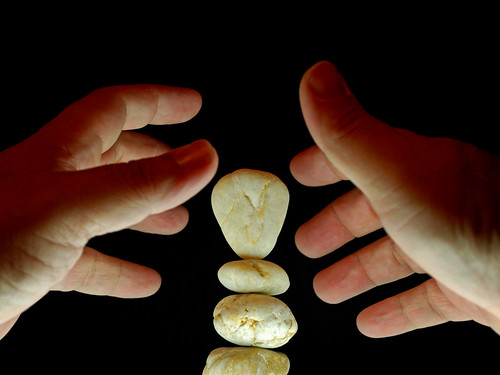
 photo credit: Nrbelex
photo credit: Nrbelex
I just finished the latest draft of our business plan. I hate writing business plans and tweaking spreadsheets. I only do it because there’s a chance it could wind up getting my company the money we need to grow.
Yesterday, I was speaking with a community group about how my company started. I was telling them about the first conversation between my business partner and I and how the outcome was an outline of the dry erase board. We still have a picture of it, somewhere, like it was our Rosetta Stone, helping us figure out where we were headed. Maybe it will be like Google’s garage.
Whether you run your own online business or you manage something that’s very offline, it’s important to think of how it all got started. Time and again, entrepreneurs and corporate leaders end up at a place questioning when it all changed. They wonder why a job they used to love turned into one they hate.
For me, it always helps to go back to the beginning. Or to put it on paper. Or to remind myself of the vision of what we’re trying to create. Doing so will help you find your place and make sure you don’t end up somewhere you don’t want to be.
What’s your relic? A founding document? An original business plan, piece of packaging or early prototype? Or, what keeps you on track towards that which you’ve been trying to create all along?

 photo credit: peasap
photo credit: peasap
This week I started a wonderful new job working with some phenomenally talented people, managing a complex, statewide, volunteer-driven policy initiative. It would probably fill up my heart and soul no matter the timing, but I’m back on the job after two years of time away from the office. Its significance at this point in my life is big.
It’s always advised to “take some time between jobs,” but often this means a couple of weeks. These past two years have been a great luxury, and helped me sort out the goals and objectives I want most to achieve in my work. In a sense, I have been working during the time away from the office, but the project was myself. The whole process got me thinking about two types of reflection.
There is the looking at the past, and analyzing and evaulating the decisions and results; there is also what we see of ourselves in other people around us. They may be clients or colleagues, but those closest to us eventually have a significant impact on our sense of self, and our ability to bring our dreams from thoughts to realities. The length of time I had away from my own old patterns made it impossible for me to deny the changes I needed to make. While it is surely easier to wish others would change, in the end it is always us who needs to alter what is happening in our own lives.
If you are struggling with needing to make a change, you might not need the extensive time I took to get there. You might just need encouragement and validation! Below are some questions that may help you get there more quickly:
Where do you see your reflection? In evaluation by others, in your own ability to steer your professional ship, in the kinds of clients you attract, in your paycheck, in your relationships with your co-workers? When you pinpoint your most common reflection, does it ring true, or do you want to see yourself somewhere else?
What one change could you make within yourself to see more of the person you want to be?

 photo credit: Dennis Wright
photo credit: Dennis Wright
If you had to choose between an idea that would generate money right now today and an idea that could generate considerably more money later, which would you choose?
It’s not a quiz, it’s an everyday decision. Some would say there’s no right answer for every business at every moment; that it depends on the circumstances; that a business hurting for cash flow probably shouldn’t pass up the short-term money. Some would say it’s a false dichotomy.
Every day we face the same choices in our personal lives when it comes to health and lifestyle decisions, and we understand the tradeoff: fun now vs. wellness later. Or when we make personal decisions about finance, and its our long-term financial well-being at stake. We know the value of compound interest, and we know that making healthy dietary decisions now can make all the difference in our health later in life.
But it seems that some businesses don’t even weigh their options; they automatically choose the short-term gains of immediate sales over creating something of lasting value. A company I used to work with struggled with this dilemma, even though they had solid earnings and money in the bank. It should have been easy to invest in their future by making decisions that would tend to make customers more loyal and return more often rather than drive customers to spend a little more in the short term.
Truly great businesses usually don’t make decisions that are based in short-term rewards; they seek outcomes that will prolong their health and enhance their longevity. We need more examples of that around us.
What’s an example you’ve seen recently of a company placing long-term health over short-term gains?

 photo credit: James Jordan
photo credit: James Jordan
We talk a lot here about work-life balance, but what about other kinds of balance? There are a lot of ways within the workplace that you can skew too far one way and lose sight of something else.
For example, it’s easy to get stuck on one side of either process or improvisation, when both have their merits. Process improvement is important to the maturity of any organization, but being quick to see and try novel solutions to problems is key to learning.
Or how about between creativity and discipline? When I worked as a technical copywriter, there were often stretches of time when I felt I needed to distract myself so I could let my mind wander and approach my work fresh when I returned to it. I used to have a sign above my desk that said “A writer is writing even when staring into space.” But it would have been all too easy to let that approach become a trap by convincing myself the distraction was needed when perhaps the discipline of the “sit butt in chair and write” approach would have at times be more helpful. I’m sure there were times I let myself off the discipline hook a little too easily, and other times when I could have used more of a break for the sake of better creativity.
What balance do you struggle to keep, and what steps do you take to ensure you keep that balance? Tell us in the comments. And have a wonderful, balanced week!






